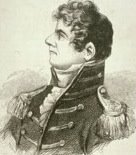A Bishop of Wales does a u-turn on women's ordination
 As can be expected from such an ancient church, there are many ancient sites of worship and pilgrimage, and St. David's Cathedral, dating from the 6th century, is one of the oldest in Britain.
As can be expected from such an ancient church, there are many ancient sites of worship and pilgrimage, and St. David's Cathedral, dating from the 6th century, is one of the oldest in Britain.
Its bishop, Carl Cooper, Bishop of St. David's, was a leading opponent of ordaining women, but since then he's had a change of heart. The single most important element in his u-turn? His direct, personal experience with ordained women and their gifts. His comments and experiences should be instructive for those who view the issue, and women called by God, as abstractions, because as Bishop Carl notes, once you get to know them, you begin to know that they are called by God to do His work.
 When the Church in Wales first considered the possibility of ordaining women to the priesthood I was one of the most vocal opponents. For reason of theology and Christian Unity I was convinced that it would be a disastrous decision. I campaigned against it and addressed the Church's Governing Body in April 1994 when the 'No' vote carried the day, much to the disappointment and annoyance of many, including some of my own parishioners.
When the Church in Wales first considered the possibility of ordaining women to the priesthood I was one of the most vocal opponents. For reason of theology and Christian Unity I was convinced that it would be a disastrous decision. I campaigned against it and addressed the Church's Governing Body in April 1994 when the 'No' vote carried the day, much to the disappointment and annoyance of many, including some of my own parishioners.
Margaret Thatcher gained notoriety for her unwillingness to perform U-turns in policy and ideology. Whether one considers it a U-turn or a conversion, I came to change my mind on the issue of women in the priesthood. Changing one's opinion is never an easy decision for any person in public life. People will always suspect one's motives and question one's agenda. Ultimately, integrity can only be demonstrated by consistency of behaviour and character and I leave that judgement to others.
Why did I change my mind? There are 3 reasons: 1) My own Church decided to ordain women to the priesthood. Either members of the Church in Wales believe that our Church is competent to discern God’s will for us, or it isn't. Even those who take part in a debate by opposing the proposal are part of the ultimate decision. We must all own it, support it and rejoice in it. 2) I came to see the inconsistencies in the theological standpoint I had espoused and proclaimed. However, no theological standpoint is ever perfect and without flaw. 3) The 'No' vote in 1994 brought home to me the pain and anguish we were causing to our sisters in Christ. I could no longer justify denying the validity of their calling.
Ever since the ordination of the first women priests in 1997 it has been my privilege to minister with a number of close, female colleagues. The last 10 years have demonstrated that our Church has been enriched, blessed and made more whole by women's priestly ministry. It now feels as if the Church of the past was incomplete. I am looking forward to the honour of presiding at the Eucharist this coming Saturday in St Davids Cathedral (13th January), together with my women colleagues, to celebrate the historic decision taken a decade ago and all that it has achieved. We will be joined by many clergy and people from around the diocese.
What of the future? Despite the decision to ordain women priests, we still have some way to go before we can claim to be a fully representative Church. There are now women in very senior parochial posts. We have women serving as Cathedral Canons and Area Deans. However, the Church in Wales has yet to appoint a woman Archdeacon or Cathedral Dean, and it still prevents women from becoming bishops. Later this year we will begin the process of deciding whether or not to allow women to be bishops. I am convinced that this will happen, hopefully sooner rather than later. It will have my unreserved support.


0 Comments:
Post a Comment
<< Home